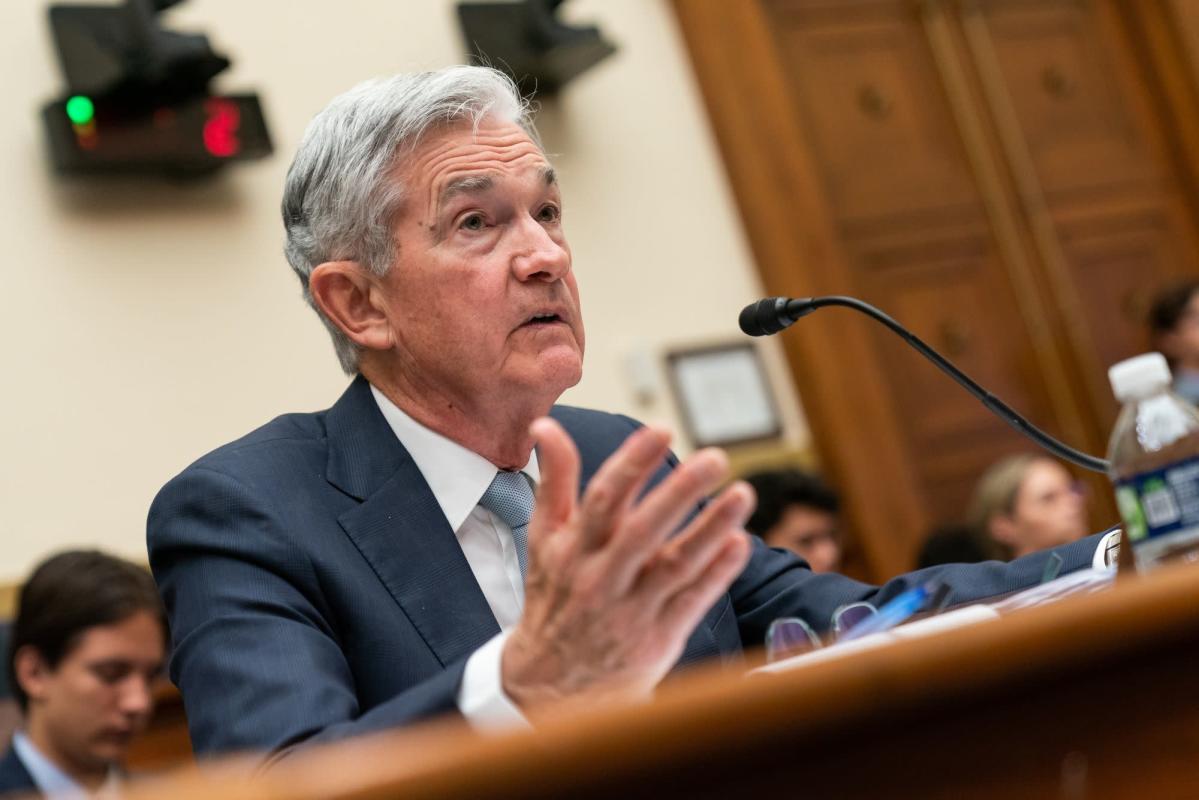
(Bloomberg) — Federal Reserve Chair Jerome Powell said the US economy is in “strong shape” and the central bank can reduce inflation to 2% while maintaining a solid labor market, even though that task has become more challenging in recent months.
He also vowed to ensure rapid price increases don’t become entrenched, saying that “we will not allow a transition from a low inflation environment to a high inflation environment.”
“We hope that growth will remain positive,” Powell said during a panel discussion Wednesday during the European Central Bank’s annual policy forum in Sintra, Portugal. Household and business finances are also in solid shape, and “overall the US economy is well positioned to withstand tighter monetary policy.”
Raising interest rates without sparking a recession “is our aim and we believe there are pathways to achieve that,” Powell said, reiterating comments he’s made this month after the Fed on June 15 raised interest rates by 75 basis points, the biggest increase in three decades. Powell has signaled that another move of that size — or a 50 basis-point increase — will be on the table when they meet again in late July.
He reiterated Wednesday that the Fed is raising rates “expeditiously” and aims to move “into restrictive territory fairly quickly,” referring to having borrowing costs at levels that would restrain rather than spur economic growth.
Powell and his colleagues have pivoted aggressively to fight the hottest inflation in 40 years amid criticism that they left monetary policy too easy for too long as the economy recovered from Covid-19. They’ve raised rates by 1.5 percentage points this year and officials forecast about 1.75 points of further cumulative tightening in 2022.
Powell said financial markets’ pricing for Fed rate-hike expectations is “pretty well aligned with where we’re going,” noting that it’s roughly in line with the forecasts that Fed policy makers issued earlier this month.
Asked by panel moderator Francine Lacqua of Bloomberg Television if he’s concerned about the yield curve — whose partial inversion is seen by some as a possible recession signal — Powell said it’s “not a top-line worry right now” and that the Fed is focused on bringing down inflation.
The shift to higher rates has rocked financial markets as investors fret the Fed could trigger a recession. About a third of economists predict a US recession as likely in the next two years, 21% seeing some time with zero or negative growth likely and the rest looking for the Fed to achieve a soft landing of continuing growth and low inflation, according to a survey earlier this month.
Powell spoke on a panel with ECB President Christine Lagarde and Bank of England Governor Andrew Bailey. All three central bankers are trying to lower inflation, which has become a global problem exacerbated by supply-chain disruptions associated with the Covid-19 pandemic as well as surging food and energy prices in the wake of Russia’s invasion of Ukraine.
©2022 Bloomberg L.P.